Creating a community of strength athletes for yourself when you’re a queer lifter can be… complicated. Transphobia and homophobia in strength sports, well, it’s not non-existent. There’s the gendered competition categories that often exclude trans and nonbinary lifters, the occasional ableism, and the kind of “old fashioned” views that tend to fester in spaces where traditional “men should be big and strong” ideals prevail.
Figuring out your place on the platform can be tough. But you can definitely tap into LGBTQ+ communities in strength sports, and not just during Pride Month. If you’re a queer lifter, you’ve got resources and community available to you 365 days a year.
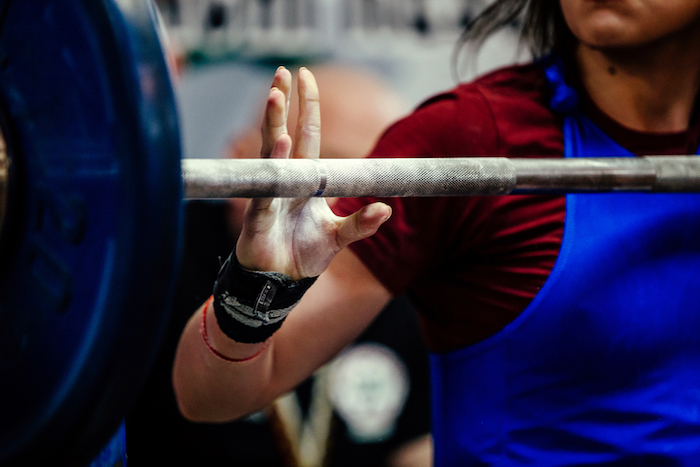
Benefits of Strength Sports for LGBTQ+ People
Strength sports are an excellent source of joy, empowerment, and confidence-building for so many people, not to mention the physical and mental health boosts a solid lifting session (or several) will give you.
But for LGBTQ+ people in particular, getting your barbell on can be an extra-important part of your athletic adventures.
Mental Health
The more LGBTQ+ people experience interpersonal and structural queerphobia, the worse LGBTQ+ mental health becomes, according to The Trevor Project’s 2019 National Survey on LGBTQ Youth Mental Health. As fitness lovers have long-since known, working out can be very useful for improving your mental health (despite those paradoxical days when your mental health makes working out feel impossible).
As an LGBTQ+ lifter, you’ll give yourself all the mental health benefits of working out, which includes reduced stress, better sleep, and increased serotonin — not to mention that lift (see what I did there?) in confidence when you pull a heavy deadlift.
Increased Body-Mind Connection/Decreased Dysphoria
The more satisfied you feel with your own body, the less other people’s transphobia will take a toll on your mental health, according to a 2018 study published in the Journal of Interpersonal Violence.(1) By studying the mental health of over 200 trans women and their experiences of transphobia-based violence, researchers found that making sure trans people have access to body-affirming care (including gender confirmation therapies) helps mitigate some of the mental health effects of structural transphobia. Of course, that doesn’t mean you can confidence your way out of oppression — but it does suggest that developing a better relationship with your body can help improve your mental health as a trans human in a transphobic society.
As a transmasculine powerlifter — with a bunch of trans friends who lift — I know that the empowerment that comes from getting under a barbell that weighs much more than you is… immense. If you’ve lifted and have loved it, no matter your gender, you probably know the sensation of literal empowerment I’m talking about. For me and a bunch of trans lifting pals, strength sports create a connection with your body that is more about what you can do than what you can look like or what gender people assume you are. For me, lifting has massively decreased my dysphoria, which is another great advantage of lifting for trans folks.
Sure, you step onto the platform alone and meet your competition commands by your lonesome. But training is rarely a solitary endeavor. Think your training buddy, your coach, your spotters, and if you make use of the resources below you’re even more likely to find your community — and finding others who live and lift like you do is super likely to make you laugh more often and add a couple plates to the bar.
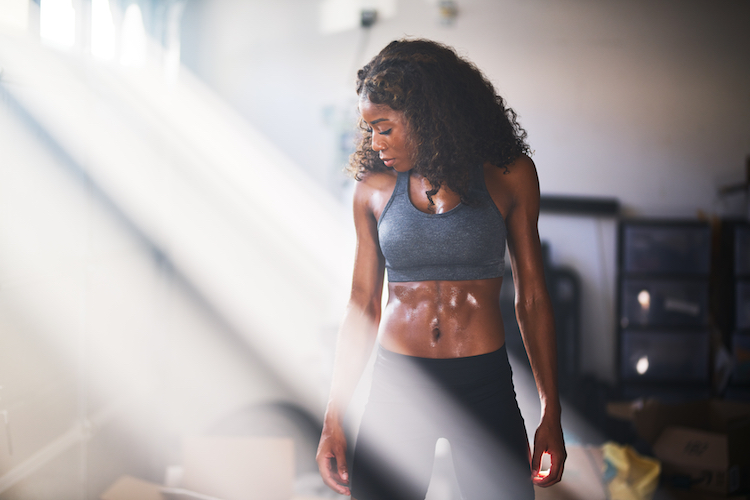
LGBTQ+ Strength Sports Organizations
If you’re trying to figure out where you fit into the great big world of LGBTQ+ strength sports, there are a bunch of organizations you should check out. These aren’t federations to compete in (more on those later) but they are excellent repositories for information and community. When you’re starting to dip your toes onto the platform as a queer athlete, pop by these websites and see what opportunities they’ve got for you.
Decolonizing Fitness
The innovation of Black, nonbinary trans personal trainer Ilya Parker, Decolonizing Fitness offers body-affirming, trauma-sensitive fitness services for folks who are marginalized in most lifting spaces. If you (or your clients) are queer, live with chronic pain, and/or are transmasculine strength athletes, Decolonizing Fitness has resources for you.
OUTWOD
If you’re into functional fitness and CrossFit, OUTWOD is definitely an organization you should be in tune with. The organization’s mission is removing barriers that keep LGBTQ+ individuals from participating in health and wellness and they also have a foundation that funds gym memberships for LGBTQ+ young adults. The org also has a neat (if understandably incomplete) Inclusive Gym Locator and regularly hosts meetups and workouts all over the world. (They were credited with helping to get CrossFit HQ to allow trans athletes at the CrossFit Games.)
Pull for Pride
Founded to advocate and fundraise for trans powerlifters, Pull for Pride is dedicated to encouraging all lifters and federations to #ShareThePlatform with trans athletes. When you love deadlifting and equity in sports — and how could you not? — Pull for Pride has got you covered.
Athlete Ally
One of the most empowering moments when you’re a strength athlete who feels alienated in your sport is realizing you’re not alone. Athlete Ally educates and advocates for trans and queer inclusion in all types of sports, from LGBTQ+ student-athletes all the way up to the pro sporting leagues.
Women’s Strength Coalition
If you like your lifting with a side of social justice — and why wouldn’t you? — the Women’s Strength Coalition works to increase access to fitness in every way from operating a nonprofit gym in Brooklyn (it’s called “Strength for All”) and helping athletes find safe spaces to train.
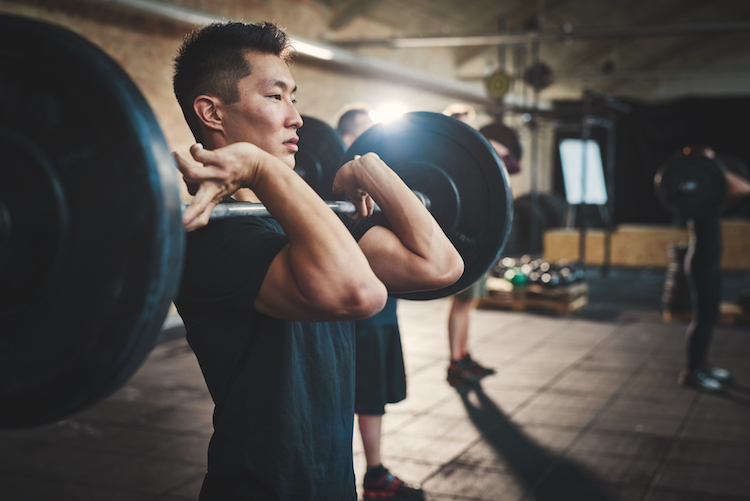
LGBTQ+ Lifting Federations
Unfortunately, there aren’t too many lifting federations that are truly inclusive of LGBTQ+ lifters. Almost all bodybuilding and powerlifting competitions (sanctioned and otherwise) have only two gender categories, which often explicitly exclude trans and nonbinary lifters from competing. Still, you’ve got some options if you’re a queer lifter and want to leave it all on the platform.
International Association of Trans Bodybuilders and Powerlifters (United States)
If you’re a trans bodybuilder or powerlifter in the US, the International Association of Trans Bodybuilders and Powerlifters is a lifting community and annual competition in Atlanta, Georgia designed just for you. The world’s first trans bodybuilding competition was hosting by IATBP in 2014, and (with a gap in 2020 because of COVID) hosts both bodybuilding and powerlifting competitions every October.
There are also several powerlifting federations that allow trans lifters to compete in untested divisions (so those taking exogenous hormones need not fear disqualification) or apply for exemptions to compete.
If you’re not based in the United States (or if you are and can travel), you’ve got some more opportunities to lift on a competitive platform as a trans or nonbinary lifter.
[Make sure you check out these trans-friendly powerlifting federations in the United States]
LGBT Powerlifting Union (United Kingdom)
If you’re US-based, lifting with the LGBT Powerlifting Union will cost you an international trip across the proverbial pond, but this trans-inclusive lifting experience isn’t one you’ll want to pass up. An unsanctioned event, the next LGBT International Powerlifting Championship is going to be held in Blackpool in July 2021.
Federation of Gay Games (Various)
In 2022, Hong Kong will be hosting Gay Games 11, which will include a feature a wide array of sports and athletes — including physique bodybuilding and powerlifting. This federation hosts their Games every four years, just like the Olympics.
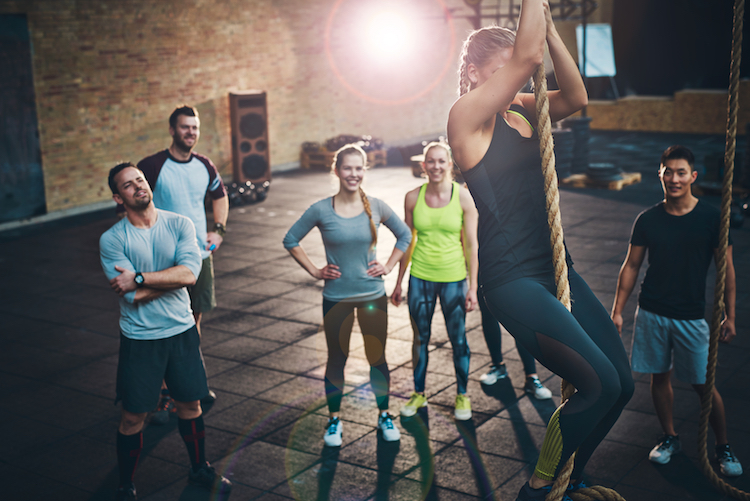
Queer Sports Education
If you can’t get enough of LGBTQ+ strength sports, you’ll want to tune into some key sources of news and education. Maybe you’re trying to educate your kid’s school about trans-inclusive sports, or maybe you just want to know the latest about queer athletes in all kinds of sports (or both). Whatever your situation, these sources are well-worth exploring.
Outsports
Whether you’re into strength sports, collegiate athletics, or plain old professional sports, Outsports has got you covered for your LGBTQ+ athletics news. From testimonials from queer athletes to fun stories like that of a lesbian weightlifting couple — who deadlifted in full bridal gowns at their wedding — Outsports will definitely give you some athletic feats to aspire to.
LGBT SportSafe Inclusion Program
The LGBT SportSafe Inclusion Program is dedicated to educating administrators on the needs of LGBTQ+ student-athletes — yes, including strength athletes. Queer coaches and administrators, too, need support in athletics, and LGBT SportSafe is meant to provide both education and community for all these folks.
GLSEN’s Transgender Inclusion in High School Athletics
GLSEN, an education and advocacy organization for the inclusion and safety of LGBTQ students in K-12, has a project that focuses on educating about and advocating for trans and nonbinary students to be able to participate fully in high school athletics. Whether you know an athlete in high school or just want to be more educated about equity in athletics, GLSEN’s Trans Inclusion In High School Athletics is a helpful place to go.
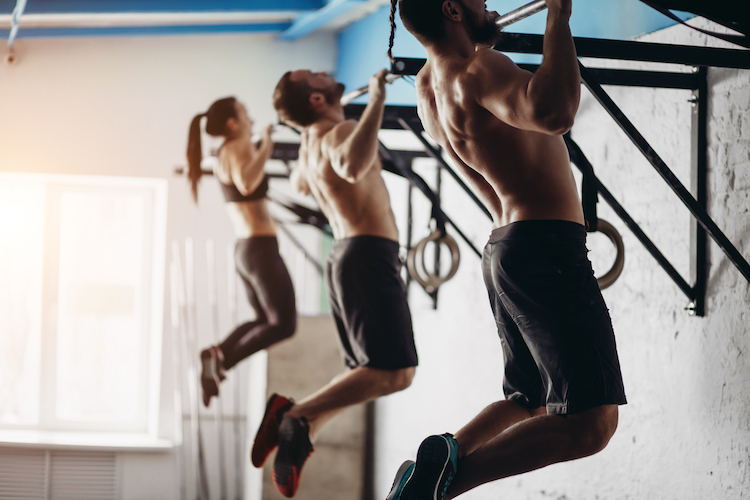
Support & Training Groups for LGBTQ+ Athletes
Okay, so you’re a queer strength athlete. You know where you can compete if you want to, and you’ve looked into a handful of different organizations that provide education and advocacy around LGBTQ+ issues in sports. Now, you’re ready to start forming your own community and supporting yourself in your athletic journey. These services, groups, and grants can hook you up with everything you need off the platform to support you on the platform.
The OUTFoundation
The OUTFoundation isn’t a gym itself, but the LGBTQ+ fitness org can help you find inclusive gyms (and trainers) near you — both IRL and online. If you want to learn from and work out with LGBTQ+ trainers during the pandemic, The OUTfoundation is featuring Zoom fitness classes by different LGBTQ+ instructors each week (as part of a campaign that is called, naturally, #werkfromhome). The OUTFoundation’s inclusive gym locator will also help you find a queer-friendly gym near you, so you don’t have to take those terrifying first steps into a potentially queer-phobic club without having your homework done for you in advance.
If you’re looking for one-on-one personal training, there are also plenty of LGBTQ+ fitness coaches to choose from!
OUTAthlete
If you’re a queer young adult and can’t afford to get involved in strength athletics or pay for your local CrossFit box, The OUT Foundation’s OUTAthlete program provides financial support for LGBTQ+ young adult strength athletes, as well as goal coaching and nutrition counseling.
OUTHealth
Another project of The OUT Foundation, OUTHealth is dedicated to the health and wellness and LGBTQ+ folks. Getting gender-affirming surgery and worried about what your post-op care will look like? OUTHealth has workshops that will support you and help you recover well so you can get back to lifting as soon as possible.
Share The Platform
A project of Pull for Pride, Share the Platform is a grant for trans, gender non-conforming, intersex, and nonbinary athletes to participate in the expensive endeavor that is strength athletics. From gym membership and lifting equipment (think lifting belts, shoes, knee sleeves, etc.) to federation membership dues and competition fees, if you’re a trans powerlifter, this grant is definitely something you want to apply for.
Fantastic Beasts Atlanta
Atlanta’s LGBTQ+ powerlifting club is LGBTQ-inclusive and absolutely delightful. It doesn’t matter if you’re an expert or have never met an actual barbell — the Fantastic Beasts Atlanta will welcome you with open arms, both the metal lifting kind and the fleshy human kind.
(Some) LGBTQ+ Athletes To Follow
As long as there have been athletes, there have been LGBTQ+ athletes. You can follow thousands of folks on Instagram and never come close to putting together a comprehensive list of queer folks in strength sports. That said, if your Instagram feed is sorely lacking in LGBTQ+ lifters, these folks are great people to start following.
Marybeth Baluyot
Marybeth Baluyot (above) is a powerlifter who won her weight class in the 2015 UPSA Nationals. She’s also the founder of the fitness podcast Disabled Girls Who Lift. DGWL, which started as an online resource center, maintains extensive resources for athletes with disabilities.
Maria Darbouze
Maria Darbouze is a powerlifting strongwoman and partner alongside Baluyot and fellow powerlifter Chloe Lansing in Disabled Girls Who Lift. Darbouze is also a Doctor of Physical Therapy.
Janae Marie
All-time powerlifting record holder and trans legend Janae Marie is definitely an athlete to look up to for her raw strength on and off the platform.
Shawn Stinson
Shawn Stinson is a two-time trans bodybuilding champion and personal trainer whose offerings include online training that you can access from anywhere.
JayCee Cooper
Powerlifter and co-director of Pull for Pride JayCee Cooper is responsible for extensive advocacy for trans and nonbinary powerlifters, as well as some pretty badass lifting.
Rob Kearney
Pro-strongman Rob Kearney also dubbed the World’s Strongest Gay, just broke the American Log Press Record by smashing through 475lb during Pride Month (recorded in front of fabulous rainbow lights, I should add). He’s the first openly gay pro strongman and has competed at World’s Strongest Man numerous times.
[Related: Rob Kearney talks competing against giants on the BarBend podcast]
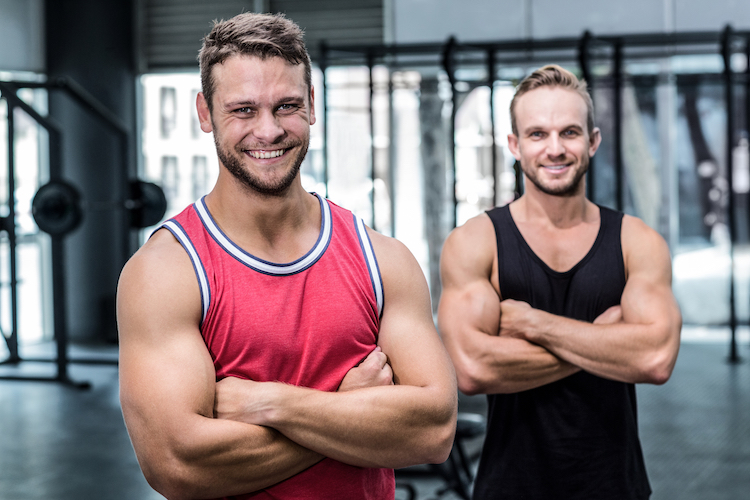
LGBTQ+ Fitness Podcasts
If you’re anything like me, you like learning about fitness… while you’re doing fitness (#HowLiftersRun). When you’re figuring out what strength sports podcasts to listen to, navigating the terrain can be tough — there’s some low key transphobia, homophobia, and misogyny out there. The following podcasts will give you excellent strength sports stories and tips, all while providing your daily dose of queer joy.
The Queer Fitness Podcast
So much that you need to know about powerlifting while trans, body acceptance in sport, and creating safe spaces for queer lifting, you can get from The Queer Fitness Podcast.
Disabled Girls Who Lift Podcast
From strongman training and the potential of losing gains during COVID, to lifting with chronic illness and ableism in sports, the Disabled Girls Who Lift Podcast is a must-listen for anyone interested in forming a sense of community while unlearning ableist tendencies you might bring on the platform with you.
The Queer Gym Podcast
If you’ve ever contemplated becoming a personal trainer or tried to figure out the most effective way to motivate yourself (without beating yourself up), there’s probably an episode of The Queer Gym Podcast for you.
Outsports Podcast
Topics ranging from anti-racism in queer sports and all-around LGBTQ+ athletics are what you’ll get from the Outsports Podcast — if you want to learn your queer sports history and keep up with the most up-to-date news about trans athletes, tune into this one.
LGBTQ+ Lifters, Unite
LGBTQ+ communities in strength sports are abundant — you just have to know where to look. The lists above are by no means exhaustive, so keep searching for more and keep creating queer lifting communities of your own, wherever you are.
Featured image via @king_dillon on Instagram
References
1. Klemmer, C L et al. Transphobia-Based Violence, Depression, and Anxiety in Transgender Women: The Role of Body Satisfaction. J Interpers Violence . 2018 Mar 1;886260518760015.

